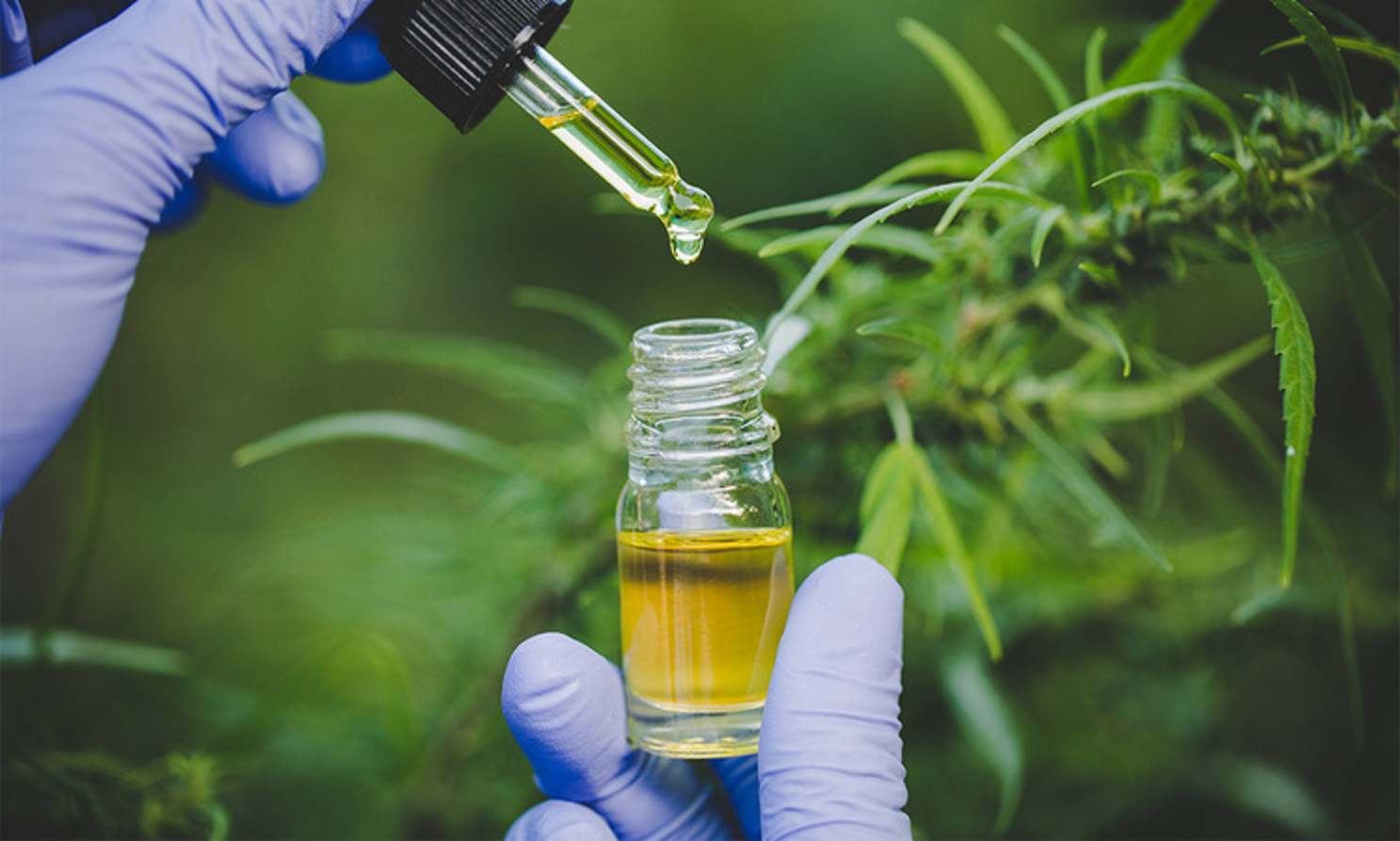
In the ever-evolving world of cannabis, two compounds have caught everyone’s attention: The present study forbids the usage of CBC (Cannabichromene) and CBD (Cannabidiol). Despite having a similar plant root, their effects and advantages differ to a great extent, which contributes to confusion.
This article aims to demystify the questions that may arise from CBC. I will address the CBC debate, highlighting the difference between CBC and CBD, the unique CBD functions, and the numerous benefits associated with CBD.
At the moment, CBC and CBD are the two cannabinoids from cannabis that are most popular because of their therapeutic activities, and it is important that anyone interested in the health possibilities of cannabis understands the distinction between them.
In this article, you will clearly understand how to distinguish them.
What Is CBD?
CBD, or Cannabidiol, is a popular compound naturally found in a marijuana plant with an increasingly diversified growing science. THC excludes CBD as the other compound plant that is responsible for such actions. People consume CBD products for varied purposes, such as relief from pain and reduction of anxiety.
CBD is found in oils, lotions, and even some foods. It interacts with a channel system in our body called the endocannabinoid system to please it. This process ensures that our body remains homeostatic and continues to function normally.
CBD’s popularity has grown due to the result that it provides relief for many issues without the side effects of dizziness and hallucinogenic effects caused by THC. For them, this is an attractive option for their relief from discomfort and the rest of the symptoms, without the sense of substance misapprehension given by marijuana as well as certain pharmaceutical drugs.
What Is CBC?
Likewise, CBC, short of cannabichromene, is yet another main component of cannabis plant that has not been paid much attention yet. CBC, on the counter part, is much less known in comparison to CBD but still gaining admiration for the possible health advantages.
CBC does not make people feel high because it doesn’t act strongly on the brain’s receptors that THC affects. Instead, it works with other parts of the body that might help with inflammation and pain.
Researchers are investigating CBC because it might help with several health issues, similar to CBD, but through different pathways. Early studies suggest CBC could support brain health by encouraging the growth of new cells, a rare property in compounds. It also might have anti-inflammatory and anti-viral properties, making it interesting for further research.
Similarly to CBC, CBD uses a different path of interaction with the endocannabinoid system but shows its effect by providing support to different health and wellness issues. As more research is being conducted, the benefits of the CBC remain unknow.
What Are the Differences Between CBD and CBC?
In order to take advantage of the incredible potential of these cannabis extracts one has to know the main differences between CBD and CBC. They both come from the same plant, but their actions and achievements are different. Below are a few points:
Chemical Structure
• CBD: Has a particular chemical structure that allows it to interact effectively with the body’s endocannabinoid system, influencing various physiological processes without inducing a psychoactive effect.
• CBC: Although similar, CBC has a different chemical makeup that results in distinct interactions with the endocannabinoid system, leading to unique effects and potential benefits.
Effects on the Body
CBD: Non-psychoactive, meaning it doesn’t make you feel high.
• Known to help with anxiety, depression, pain relief, and anti-inflammatory properties.
• Affects multiple receptors outside the endocannabinoid system, contributing to its diverse range of uses.
CBC: Also non-psychoactive and doesn’t cause a high.
• Potential to promote brain health by stimulating natural brain growth processes.
• Might have anti-inflammatory, anti-viral, and analgesic (pain-relieving) properties distinct from CBD.
Health Benefits
CBD: Extensively studied for its effects on anxiety, chronic pain, and insomnia.
• Used in various forms, including oils, edibles, and topicals, for its therapeutic benefits.
CBC: Less researched, but early studies suggest benefits for conditions like acne due to its anti-inflammatory qualities.
• Potential support for brain health and neural stem progenitor cells, indicating a possibility for neurological benefits.
Availability
CBD: Widely available in numerous products across many countries, making it easily accessible for those seeking its benefits.
CBC: Less common than CBD, with fewer products on the market.
• However, interest in CBC is growing, and it’s becoming more available as research continues to uncover its potential.
Recognizing these differences will help users make the right choice about which compound works best in their pursuit of a healthy lifestyle.
Both CBD and CBC present amazing possibilities for consumers. However, they have different attributes; they can be quite effective in some areas of health; for instance, some can relieve pain.
What Are the Potential Benefits of CBD?
Anxiety Relief
CBD is one of the components that has been known to possess sedative properties by affecting the nervous system. Data indicate that in such circumstances, it appears to be the best tool for people suffering from panic or anxiety disorder. CBD can naturally regulate mood, settle the mind, and ease tension by interfacing with the endocannabinoid system.
Improved Sleep Quality
When it comes to insomnia or poor sleep, CBD could be a natural alternative to the general medical approach. Its capability of cutting down on anxiety and the ability to relax may improve the quality of sleep. People may spend less time trying to fall asleep, thus experiencing a sounder sleep.
Joint Health and Mobility
Because it has anti-inflammatory properties, CBD has become popular in managing joint pain and bettering movement. In this way, CBD is hailed as useful and powerful in medicine. It may be useful in treating conditions like arthritis, which entails inflammation and could help relieve itchiness, improving overall functioning and quality of life.
Skincare Benefits
CBD’s anti-inflammatory and antioxidation characteristics even show up in skincare products. It can be applied to conditions such as acne, eczema, and psoriasis. By reducing inflammation and regulating oily production, skin care products that intrinsically contain CBD could be used to achieve healthier and clearer skin.
Stress Management
In today’s hectic world, where people barely take time to breathe, stress management is an inalienable aspect of life to maintain a healthy self. CBD is well known for modulating the body’s response to stress by giving a feeling of calmness and tranquility, which can substantially aid in combating the physical and psychological outcomes.
What Are the Potential Benefits of CBC?
Nervous System
CBC could be beneficial for the central nervous system. To begin, it has been found to help manage the neuronal activity by working as a balancer and also offering a smooth running along the trackways. This is a step forward in the treatment of conditions such as anxiety and depression without necessarily the mind-altering effects of THC.
Anti-inflammatory Properties
Just like CBD, CBC, with its anti-inflammatory features, can be used to treat disorders such as pain associated with inflammation. These characteristics of CBC put it in a special position for medical research on cancers, arthritis, bowel disease, and inflammation-related pain, which is an alternative treatment.
Pain Relief
CBC shows the possibility of relief from pain while being another form of drug apart from the traditional one. These pain-reducing mechanisms involve the interaction of CB1 and CB2 receptors outside the endocannabinoid system, which may modulate the way the body perceives pain, making it a proven option for long-term pain relief.
Neuroprotective Effects
Furthermore, the compound may be capable of neuroprotection, an action that could aid the brain in avoiding deterioration and disease. CBC could also help delay or manage such neurological conditions through its ability to lower the stress caused by free radicals and fight inflammation.
Promotion of Neurogenesis
In fact, the brain grows new cells through the process of neurogenesis, which is indeed one of the most promising prospects of CBC. Therefore, this plays an important role in the field of neurobiology because the substance that can increase neuronal growth is extremely rare, and it brings hope of treating different neurological disorders and oncology.
Is CBC Legal?
The legal standing of CBC, like the majority of CBD variants, is different in terms of location and usually gets into debate in the global arena. When it comes to the legality of cannabis-based products provided by the CBC, laws concerning marijuana and hemp have to be studied for a particular region.
In the United States, the legality of CBC hinges on its source. Following the 2018 Farm Bill, hemp-derived compounds, including CBC, became federally legal as long as the final product contains less than 0.3% THC, the psychoactive compound in cannabis.
This means that CBC derived from hemp, under these conditions, is legal at the federal level. However, state laws can differ, with some states imposing restrictions on all cannabis-related products, regardless of their THC content or whether they’re derived from hemp.
In other countries, it is for lawmakers to decide and the legal status of the can vary greatly according to place. Certain countries have particular regulations for cannabinoids, while others may treat certain groups of cannabis-derived products with separate legal frameworks differentiated based on their psychoactive effects.
Businesses and consumers alike need to be aware of the local, state, and federal regulations governing items generated from cannabis in their communities. Regulations may alter when legal environments change and public interest in cannabis products like CBC increases, thus extending CBC’s legal reach.
Always consult current laws in your jurisdiction before purchasing or using CBC products to ensure compliance.
How Long Does CBD Take to Work?
The efficacy time of CBD differs depending on the most important factors; these are the administration route, particular CBD product’s quality and concentration, bodyweight, metabolism, health condition, disease and symptoms.
Methods of Consumption and Their Impact
Inhalation (Vaping/Smoking):
CBD enters the bloodstream directly through the lungs, making it one of the fastest methods. Effects can begin within minutes, making it a preferred option for those seeking immediate relief.
Sublingual (Under the Tongue):
Placing CBD oil or tinctures under the tongue allows for absorption into the bloodstream via the mucous membranes. This method can produce effects within 15 to 30 minutes.
Topical Application:
When applied to the skin, CBD interacts with local cannabinoid receptors. This method is slower, as the CBD needs to penetrate the skin, but it can be effective for targeted relief, usually within an hour.
Ingestion (Edibles/Capsules):
Consuming CBD in the form of edibles or capsules results in a slower onset of effects because the CBD must pass through the digestive system and liver. This can take anywhere from 30 minutes to 2 hours.
Individual Factors
The effectiveness and speed at which CBD works can also be influenced by the individual’s specific body chemistry, including factors like metabolism, overall health, and the presence of food in the stomach.
Quality and Dosage
High-quality, potent CBD products may provide more significant effects more quickly than lower-quality alternatives. Additionally, the correct dosage plays a crucial role in how effectively and swiftly CBD works, with too low a dose possibly leading to delayed or unnoticed effects.
When to Use CBD and CBC?
Sleep Support
- CBD: Well-known for its relaxing properties, CBD helps lessen anxiety and help the mind relax, which makes it simpler to go to sleep. For people who experience insomnia or restless evenings, this is a wonderful option.
- CBC: Although there is little data on CBC’s direct effects on sleep, its ability to lessen inflammation and ease pain may help improve the quality of sleep by treating discomfort that could otherwise prevent a person from getting enough rest.
Enhancement of Energy
- CBD: After using CBD, some users say they feel more alert and concentrated, especially when utilizing smaller dosages. It could contribute to better energy levels during the day by regulating sleep habits.
- CBC: Due to its neuroprotective and mood-boosting properties, CBC may help energy enhancement indirectly, hence enhancing general vitality and well-being.
Reducing Tension and Nervousness
- CBD: Widely recognized for its ability to lower anxiety, CBD can ease tense muscles and encourage serenity and relaxation.
- CBC: Although it has attracted less research, CBC may also help lower levels of anxiety and tension in the nervous system. This is because it interacts with the endocannabinoid system, which controls mood and stress reactions.
Mood Enhancement
- CBD: CBD’s interaction with serotonin receptors may offer mood-stabilizing effects, helping to alleviate depression symptoms and enhance overall mood.
- CBC: Early studies suggest CBC might have antidepressant properties, offering potential as a mood enhancer by fostering a positive mental state and emotional balance.
Pain Management and Relief
- CBD: Well-documented for its anti-inflammatory and analgesic effects, CBD is effective in managing chronic pain, arthritis, and muscle soreness, providing a natural alternative to traditional pain medication.
- CBC: Similar to CBD, CBC exhibits pain-relief properties, especially in terms of reducing inflammation and interacting with pain receptors to alleviate discomfort.
Choosing between CBD and CBC—or using them in conjunction—depends on your specific health goals and needs. Both compounds offer promising benefits for sleep support, energy enhancement, mood improvement, and pain management.
Frequently Asked Questions
Is CBD better than CBC for sleep?
CBD may be the primary choice for the cases of the sleep problems because of the scientifically proven relaxing effect, that helps to relieve stress and states motor peace. Though CBC, play a role in sleep too, CBD has a direct influence on anxiety and rest and these are the reasons why CBD is much preferred.
Can you take CBD and CBC together?
Yes, you sure can have CBD and CBC both. Mixing them may be used for their combined effect based on the entourage effect that claims multiple compounds in cannabis have a synergistic effect, potentially offering comprehensive advantages not only for well-being but also for one’s health in general.
How does CBC make you feel?
Compared to THC, a general CBC experience is not “high” or euphoric because CBC does not bind to the neuronal receptors as much. On the other hand, the users might experience less pain and inflammation and mild mood improvement.
Does CBD get you high?
No, unlike THC, CBD does not get you high. CBD is the main differentiating factor against THC, which is a psychoactive compound that produces euphoric effects similar to marijuana but unlike the latter, CBD is not psychoactive, thus making it suitable for those looking to relieve a condition without experiencing the intoxicated state associated with its usage.
Does CBC Help with Pain?
Yes, the CBC is likely to reduce pain. Preliminary studies and testimonials show that CBC has anti-inflammatory and analgesic properties; thus, it can be used to treat pain as well, especially when it is related to inflammation.
The Bottom Line
The article discusses the differences between two compounds found in the cannabis plant: Cannabichromene (CBC) and cannabidiol (CBD). Both of them are well-known for their recovery properties. However, they are distinct by their benefits and effects. CBD is famous for its safe, non-intoxicating property that helps to ease mood and pain to improve sleep.
It is a tetrahydrocannabinol (THC) that is produced naturally by the body and is responsible for keeping the system of endocannabinoids in the body balanced. This cannabinoid is found in a variety of products ranging from oils to body lotion, just to mention a few. In contrast to THC, CBC is increasing awareness with regard to the associated health benefits.
For instance, CBC may improve memory and reduce inflammation without THC-associated adverse reactions. The article intends to deal with the specific functions and pros of CBC and CBD so that shoppers can use this information to choose the one that best suits their health purposes.




